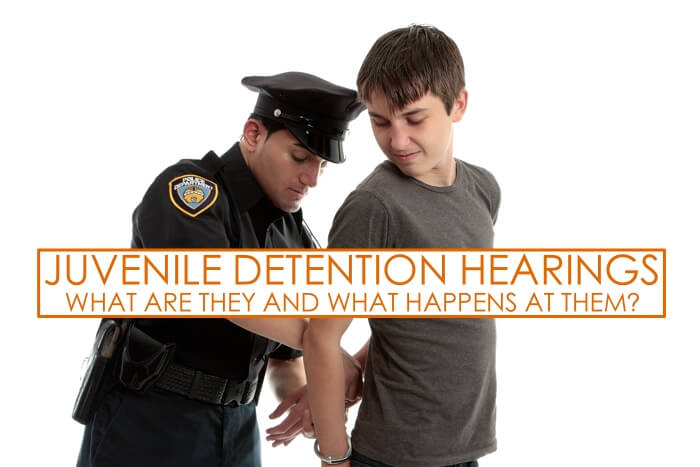
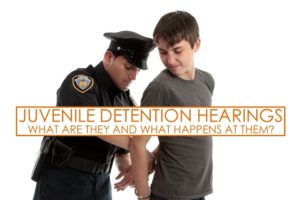 If a juvenile (a child between the ages of 10-16) is arrested, that person is taken to a juvenile detention center instead of jail. In the juvenile justice system, there is no such thing as bail. There is no amount of money a parent can pay to get their child out of detention. Instead, a detention hearing will be held. This article will explain what detention hearings are, why you need an attorney, and what happens during those hearings.
If a juvenile (a child between the ages of 10-16) is arrested, that person is taken to a juvenile detention center instead of jail. In the juvenile justice system, there is no such thing as bail. There is no amount of money a parent can pay to get their child out of detention. Instead, a detention hearing will be held. This article will explain what detention hearings are, why you need an attorney, and what happens during those hearings.
What Is a Juvenile Detention Hearing in Texas?
According to the Texas Family Code Section 54.01(a), a detention hearing is required to be held within two business days after a juvenile has been detained. If the juvenile is detained on a Friday or Saturday, then the detention hearing is required to be held on the first business day. If, after the initial hearing, a child is kept in detention, then the law requires additional detention hearings to be held every 10 business days for as long as that juvenile is in custody. If a juvenile is detained, his attorney can request an additional hearing sooner than 10 business days.
The purpose of these hearings is for a judge to determine whether the court should continue to detain that child or release him to a parent or another responsible adult while decisions about that juvenile’s case are made.
Family Code Section 54.01(e) requires that a juvenile be released at a detention hearing unless the judge finds that the juvenile:
- is likely to abscond,
- has inadequate supervision,
- does not have an adult to bring him back to court,
- is a danger to himself or the public safety, or
- has previously been adjudicated for an offense and is likely to commit another offense if released.
Does My Child Need an Attorney for the Juvenile Detention Hearing?
The short answer is yes. Section 51.10 of the Family Code gives a juvenile the right to an attorney at all important stages of the process, including the detention hearing. This section goes on to say that if a child is not represented by a lawyer at a detention hearing and is detained, the court must immediately either appoint him an attorney or order the family to hire one.
The court will only appoint a lawyer if the judge determines that the family is indigent based on the court’s financial guidelines. Most families won’t meet this standard. If the court does appoint an attorney, the court will determine who that person is. This is done by looking at who is next up on the list. Whether your child gets a good attorney, or a bad one, is decided by the luck of the draw.
You can, however, hire a lawyer to represent your child before the first, or any, detention hearing. If you hire an attorney, you will get to decide who that is. You can pick out one that you feel comfortable handling such an important matter for your child.
Why Should I Hire a Juvenile Defense Attorney as Opposed to Getting a Court-Appointed One?
It is best if you hire a lawyer for your child prior to the initial detention hearing. If the court appoints an attorney, that person will meet you and your child for the first time at the detention hearing. During that hearing, or minutes before, will be the first time that the appointed lawyer will hear anything about your child’s case. In some instances, you won’t have an opportunity to talk to the appointed attorney until after the detention hearing.
On the other hand, if you hire a lawyer, you will have a chance to meet with that person before the hearing. This will give the attorney an opportunity to learn about the case before walking into the courtroom for the detention hearing. This, in turn, will allow the lawyer to be better prepared to explain to the judge why she should release your child.
Additionally, an attorney is better equipped to represent your child if they are involved with the case from the very beginning. Many times, things are said during an initial detention hearing that may later become relevant to the underlying case and your child’s defense. If you wait until later in the process to hire an attorney, that person may never hear that relevant information. It is much more difficult for a lawyer to come into a case that is already ongoing than it is to be involved from the beginning.
What Happens During Juvenile Detention Hearings in Tarrant County?
The detention hearing is an informal hearing. Generally speaking, the following people will be present for it: the judge, the juvenile, an intake probation officer, a prosecutor, and a defense attorney. There may also be others present, such as a therapist, victim’s assistance officer, or a CPS worker.
After the judge warns the juvenile about his rights, the probation officer will summarize the reasons why the juvenile is in detention. This may include a summary of the police report and/or any probation violations that the juvenile is alleged to have committed. The probation officer will also detail the child’s history with the juvenile system.
Then, the judge will give the juvenile, the parent, the attorneys, and anyone else involved an opportunity to speak. Under Family Code Section 54.01(g), nothing the juvenile says during the detention hearing can be used at any later hearing. The judge may also have questions for one or more of the participants. Then, the judge will make his decision.
Conclusion
In conclusion, a detention hearing is an informal method for a judge to determine whether a juvenile who has been detained should continue to be held in custody or released. Because of this purpose, the hearing is held relatively quickly after an arrest and then is repeated on a regular schedule for as long as a child is in detention. An attorney is required to represent the child at these hearings and should be retained as soon as possible.
About the Author
Christy Dunn is a writer and attorney licensed to practice in Texas. She was a prosecutor for 15 years. The last five years of her prosecutorial career was spent in the Juvenile Division of the Tarrant County District Attorney’s Office. She has tried over 20 juvenile cases in Texas and multiple certification hearings. She was part of a multidisciplinary team that created a juvenile diversion program for youth with problematic sexual behaviors.


 One of the highest-profile hate crimes in the nation to occur in recent years involved
One of the highest-profile hate crimes in the nation to occur in recent years involved 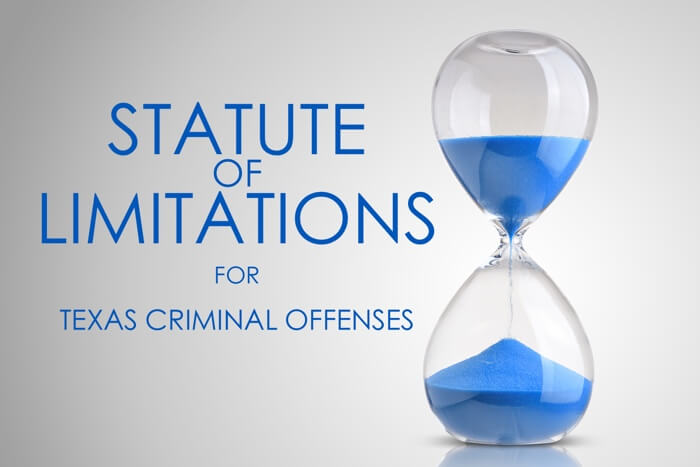
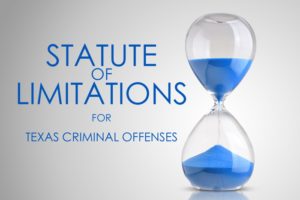 Texas law sets out the statute of limitations, the period during which formal charges must be brought against the defendant for most offenses. These time periods range from two years to over twenty years, and for some offenses there is no limitation period at all. The applicable limitation period depends on the particular offense that is alleged.
Texas law sets out the statute of limitations, the period during which formal charges must be brought against the defendant for most offenses. These time periods range from two years to over twenty years, and for some offenses there is no limitation period at all. The applicable limitation period depends on the particular offense that is alleged.
 The Lautenberg Amendment to the Gun Control Act enacted in the Fall of 1996 provides that those with a conviction for a misdemeanor crime of domestic violence cannot use, possess, or transport a firearm or ammunition.
The Lautenberg Amendment to the Gun Control Act enacted in the Fall of 1996 provides that those with a conviction for a misdemeanor crime of domestic violence cannot use, possess, or transport a firearm or ammunition.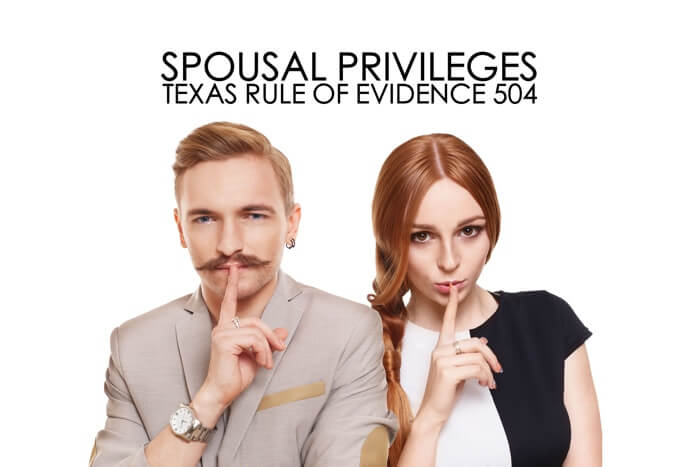
 Everyone knows (or should know) of the attorney-client privilege which prohibits the calling of an attorney to testify as a witness against his client and protects the attorney-client relationship. But what about the husband-wife relationship? Are spouses afforded any protection from having their spouse testify against them in a criminal trial?
Everyone knows (or should know) of the attorney-client privilege which prohibits the calling of an attorney to testify as a witness against his client and protects the attorney-client relationship. But what about the husband-wife relationship? Are spouses afforded any protection from having their spouse testify against them in a criminal trial?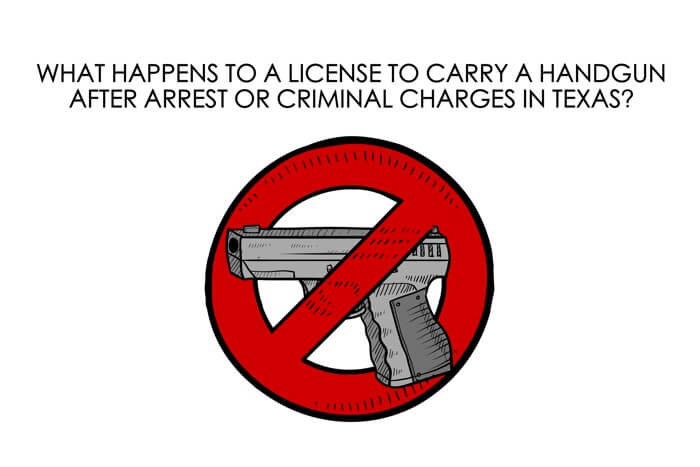
 There are many consequences for persons arrested and charged with a crime in Texas. One of the often overlooked considerations is whether and to what extent a criminal accusation impacts one’s authorization to carry a weapon with a License to Carry (LTC), formerly a Concealed Handgun License (CHL). The reality of gun possession in today’s political climate is that the restrictions are many and increasing.
There are many consequences for persons arrested and charged with a crime in Texas. One of the often overlooked considerations is whether and to what extent a criminal accusation impacts one’s authorization to carry a weapon with a License to Carry (LTC), formerly a Concealed Handgun License (CHL). The reality of gun possession in today’s political climate is that the restrictions are many and increasing.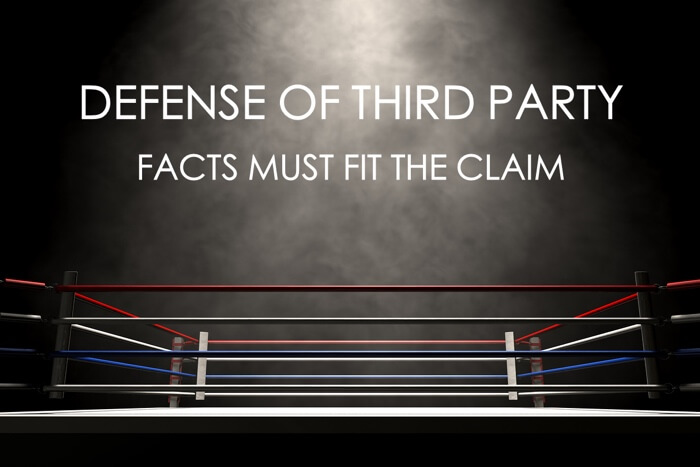
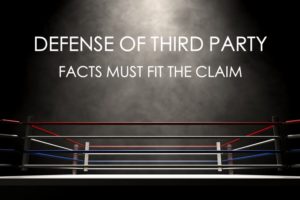 This week, the Texas Court of Criminal Appeals released Henley v. State. In a 4-3 decision the divided court held that the defendant was not allowed to offer “defense of a third party” as a legal argument in his assault case, because it “was not material to, nor probative of, any fact that was of consequence to the determination of this action.”
This week, the Texas Court of Criminal Appeals released Henley v. State. In a 4-3 decision the divided court held that the defendant was not allowed to offer “defense of a third party” as a legal argument in his assault case, because it “was not material to, nor probative of, any fact that was of consequence to the determination of this action.”
 Did Rougned Odor Assault Jose Bautista Under Texas Law?
Did Rougned Odor Assault Jose Bautista Under Texas Law?
 Most misdemeanor cases in Texas are charged by way of a document called an ”information.” An information does not have to be issued by a grand jury. The information can simply be prepared and reviewed by a District Attorney and then subsequently filed in a court with proper jurisdiction. Felony cases, on the other hand, must be indicted by a grand jury unless a defendant chooses to waive indictment and proceed without one.
Most misdemeanor cases in Texas are charged by way of a document called an ”information.” An information does not have to be issued by a grand jury. The information can simply be prepared and reviewed by a District Attorney and then subsequently filed in a court with proper jurisdiction. Felony cases, on the other hand, must be indicted by a grand jury unless a defendant chooses to waive indictment and proceed without one.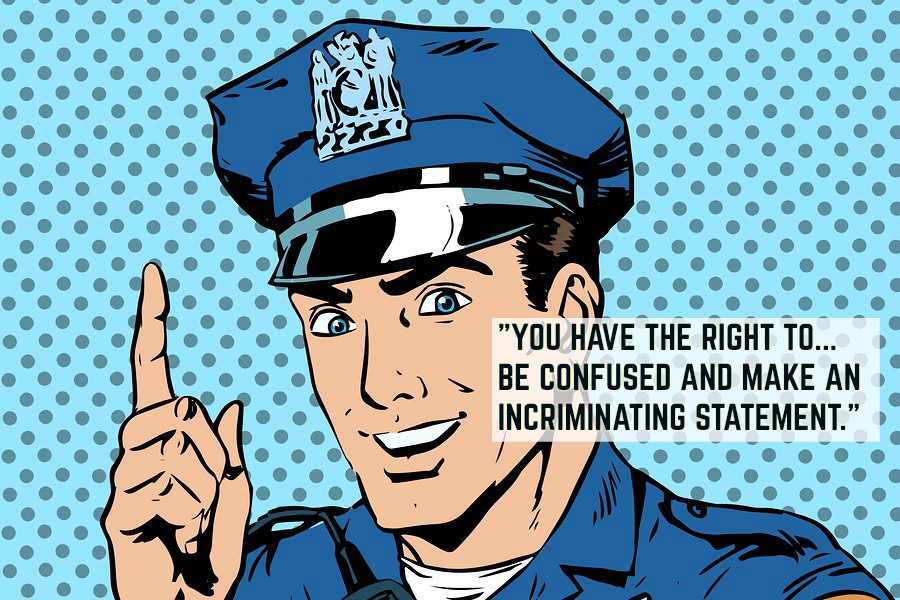
 We all know that the police must read the Miranda warnings before they question someone that is under arrest. But what does that look like in a practical sense? Can the officer read the Miranda warnings like the side effect warnings in a prescription drug commercial, where we can’t understand them? Or does he have to read them slowly, ensuring that the person being questioned fully understands each provision? This issue recently came up in
We all know that the police must read the Miranda warnings before they question someone that is under arrest. But what does that look like in a practical sense? Can the officer read the Miranda warnings like the side effect warnings in a prescription drug commercial, where we can’t understand them? Or does he have to read them slowly, ensuring that the person being questioned fully understands each provision? This issue recently came up in 





